A great way to celebrate World Karinto Day, but netizens immediately mistook it for something else.
wagashi (Page 2)
Edo period confectionery store learnt the secret recipe from a monk on a mountain in Kyoto.
A long-established Kyoto confectionery shop is selling these do-it-yourself kits with simple video instructions.
Turns out you don’t have to look very far to collect all seven dragon balls – just go to your local Family Mart.
This is a one-of-a-kind sweet that you’ll never be able to get anywhere else, for a limited time only!
One of Japan’s best katana-collection museums recreates its swords in miniature form for you to cut up your desserts with.
Signs of the seasons, from rainbows to cherry blossoms, have never looked as good, or tasty, as these breathtaking nerikiri desserts.
Japanese sweets and teas every bit as elegant and colorful as Kyoto itself.
Read More
Mickey and Minnie have been turned into sweet Japanese confections this winter, and one thing’s for sure: they’re way too adorable!
Tanabata, also known as the Star Festival, is once again on our doorstep and now with this “how to” video you can make your very own Raindrop Cake to celebrate!
After hearing that traditional Japanese sweets now come in the shape of lovable robot cat Doraemon, our food-loving writer Meg just had to give them a try!
How well do you know your wagashi (Japanese sweets)? If you’re struggling to put a name to any of the traditional delectables pictured above, there’s a store in Kyoto that can help.
By creating decorative embroidered versions of some of Japan’s most popular confections, Kyoto-based Kyototo is giving us an education in the names and background of the hand-crafted treats that are often seasonal but always delicious. Come with us as we take a look at twelve of the most beautiful wagashi you can find in Japan.
Remember those beautiful edible “jewels” that we shared with you a couple of weeks ago? Made simply from sugar, agar-agar, and a beverage of your choice, the jewels are both pretty to look at and make a cool – in both senses of the word – summer treat.
They’re still all the rage right now on Japanese social media, so our Japanese reporter Shimazu decided to try making some jewel flavor combinations for herself. She even experimented with three different manners of preparation–serving them right away, freezing them, and letting them sit for a few days to harden.
Which method of making them do you think she enjoyed the most?
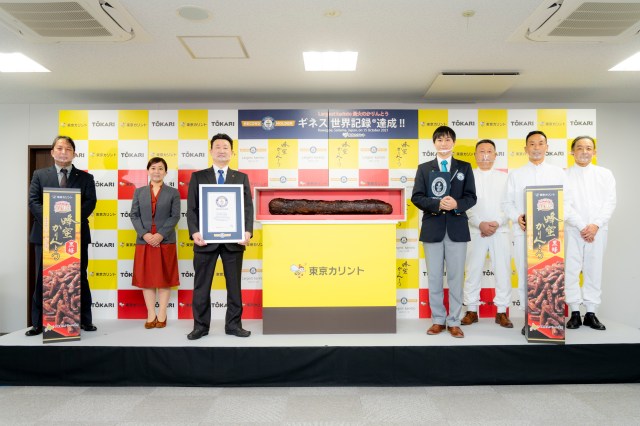
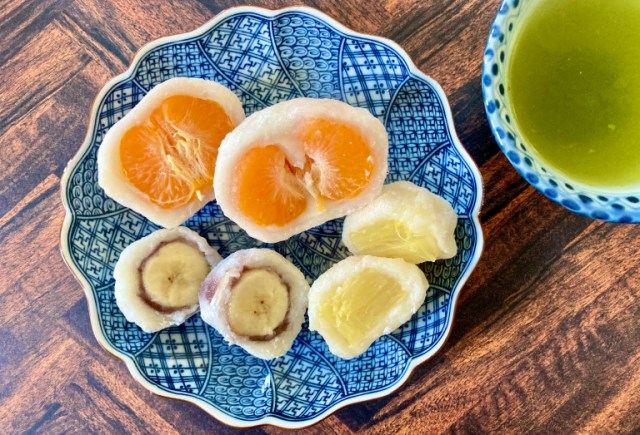
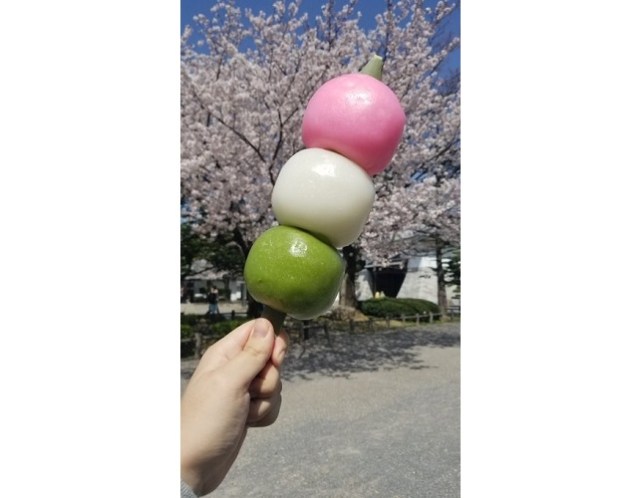

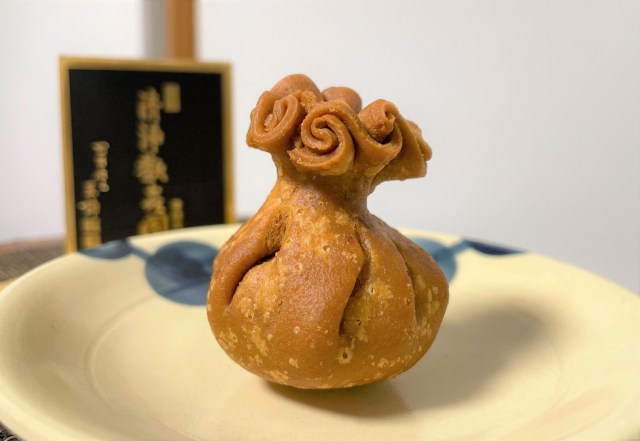
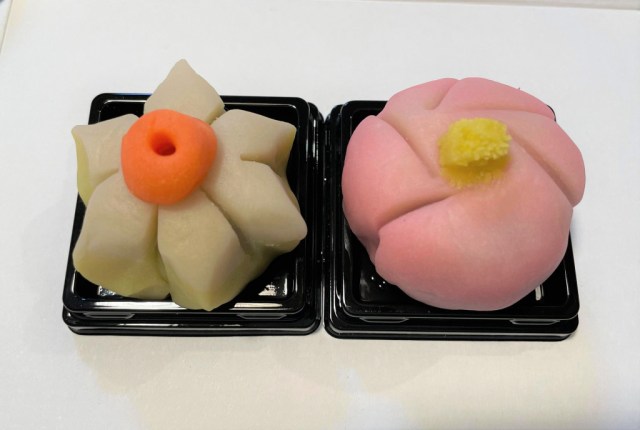
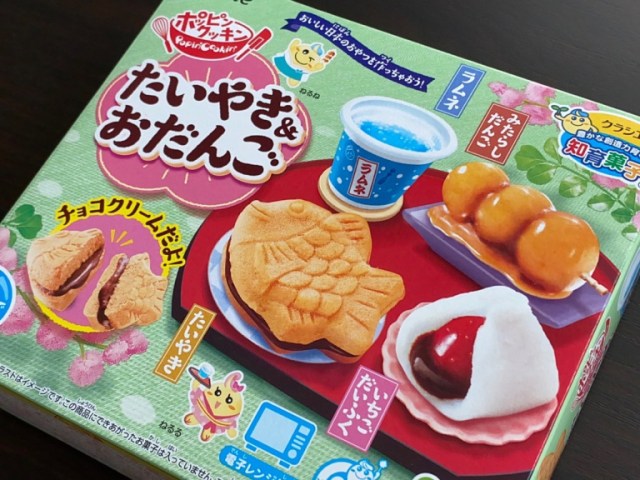
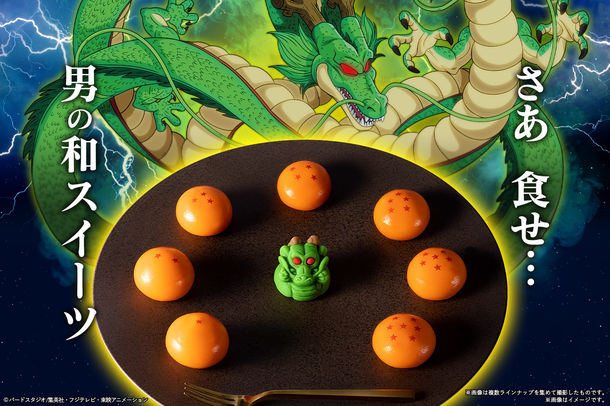
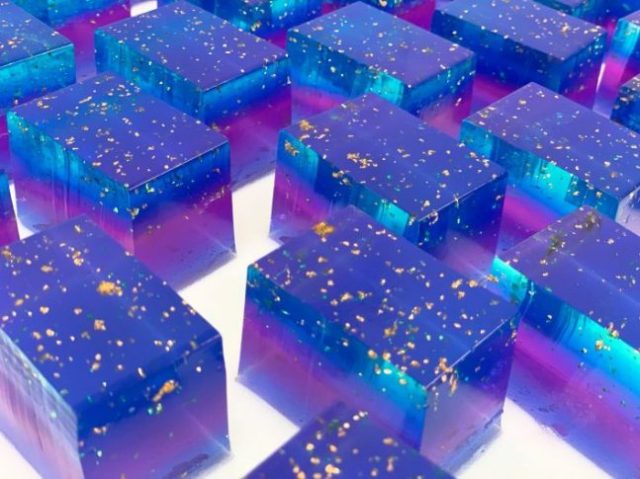
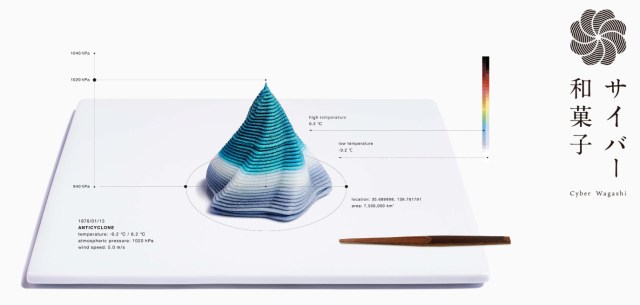
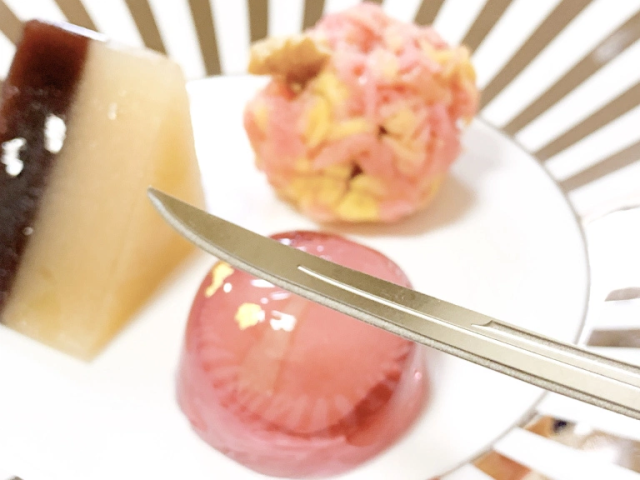

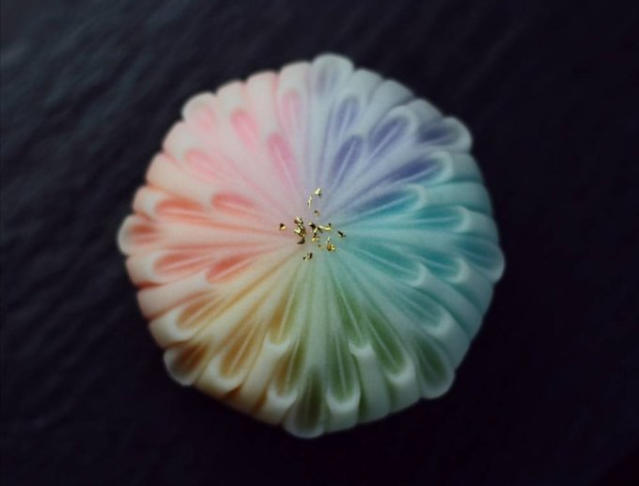
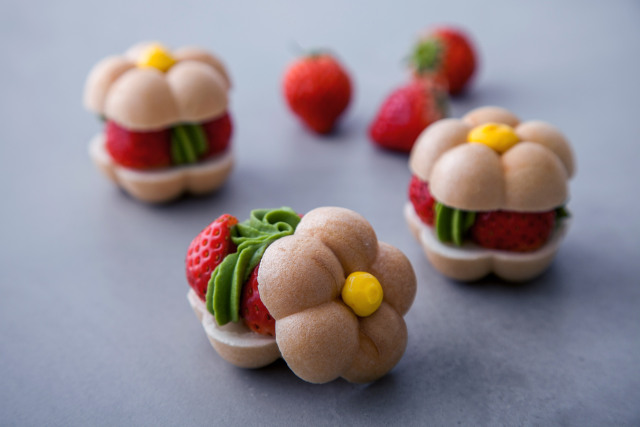
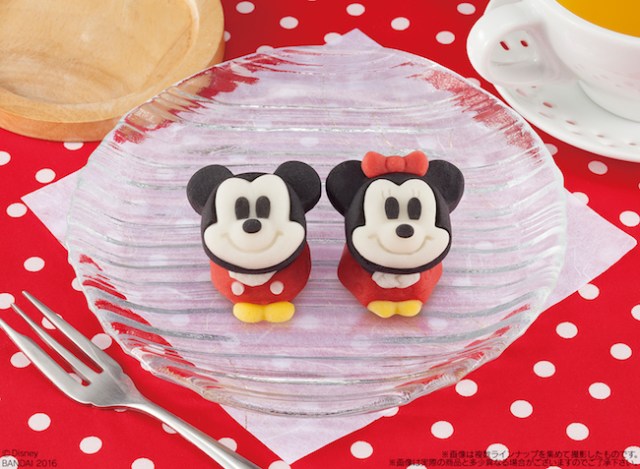
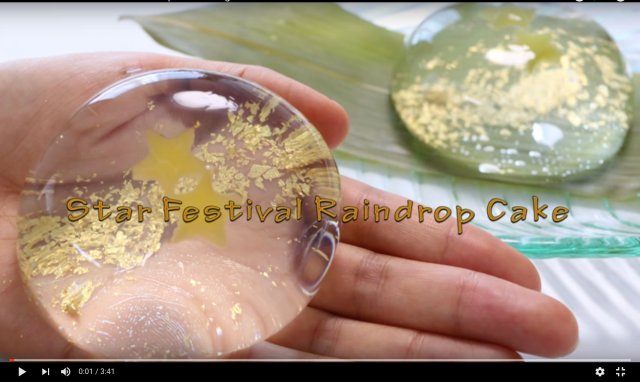
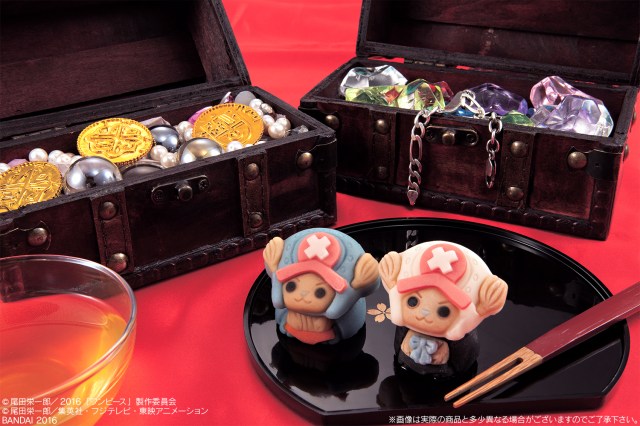
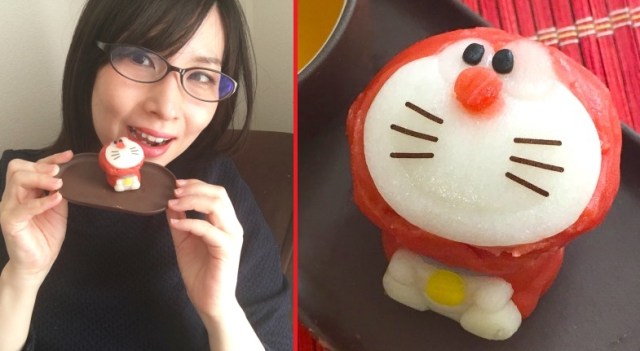
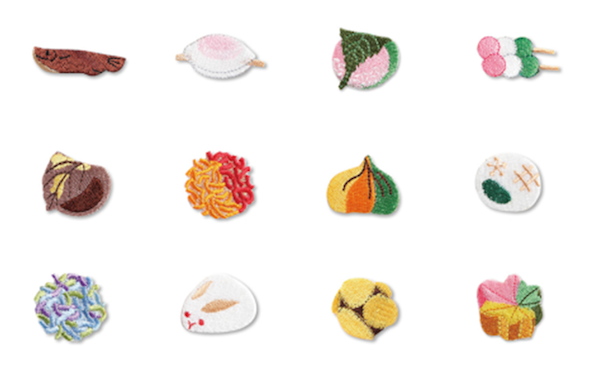
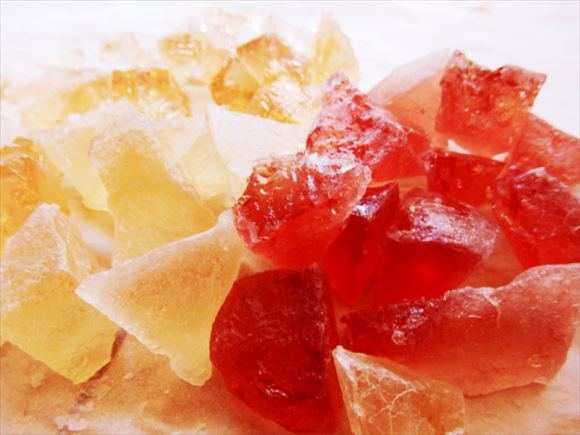
 Japan releases first official sakura cherry blossom forecast for 2026
Japan releases first official sakura cherry blossom forecast for 2026 Tommy Lee Jones cries, says sayonara to the Heisei era in epic new Boss coffee commercial 【Video】
Tommy Lee Jones cries, says sayonara to the Heisei era in epic new Boss coffee commercial 【Video】 Which convenience store onigiri rice balls are the most popular? Survey reveals surprising results
Which convenience store onigiri rice balls are the most popular? Survey reveals surprising results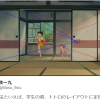 Manga artist raises question online about false perspective in Ghibli film My Neighbor Totoro
Manga artist raises question online about false perspective in Ghibli film My Neighbor Totoro Abacus making a comeback with Japanese kids in an increasingly digital age
Abacus making a comeback with Japanese kids in an increasingly digital age Viral Japanese cheesecake from Osaka has a lesser known rival called Aunt Wanda
Viral Japanese cheesecake from Osaka has a lesser known rival called Aunt Wanda Japan Extreme Budget Travel! A trip from Tokyo to Izumo for just 30,000 yen [Part 2]
Japan Extreme Budget Travel! A trip from Tokyo to Izumo for just 30,000 yen [Part 2] Tokyo street sweets: The must-snack treats of Nakano’s Refutei
Tokyo street sweets: The must-snack treats of Nakano’s Refutei Full-color anime art wall appears in Tokyo station as Jujutsu Kaisen returns to Shibuya【Photos】
Full-color anime art wall appears in Tokyo station as Jujutsu Kaisen returns to Shibuya【Photos】 Inakaya Denim jeans are the latest farm-fresh Japanese-inspired fashion item
Inakaya Denim jeans are the latest farm-fresh Japanese-inspired fashion item Starbucks Japan releases first-ever Hinamatsuri Girls’ Day Frappuccino
Starbucks Japan releases first-ever Hinamatsuri Girls’ Day Frappuccino Japanese restaurant chain serves Dragon Ball donuts and Senzu Beans this spring
Japanese restaurant chain serves Dragon Ball donuts and Senzu Beans this spring Highest Starbucks in Japan set to open this spring in the Tokyo sky
Highest Starbucks in Japan set to open this spring in the Tokyo sky Japan Extreme Budget Travel! A trip from Tokyo to Izumo for just 30,000 yen [Part 1]
Japan Extreme Budget Travel! A trip from Tokyo to Izumo for just 30,000 yen [Part 1] Japan has only one airport named after a samurai, so let’s check out Kochi Ryoma【Photos】
Japan has only one airport named after a samurai, so let’s check out Kochi Ryoma【Photos】 Japan’s craziest burger chain takes menchi katsu to new extreme levels
Japan’s craziest burger chain takes menchi katsu to new extreme levels Japanese drugstore sells onigiri at pre-stupid era prices, but how do they compare to 7-Eleven?
Japanese drugstore sells onigiri at pre-stupid era prices, but how do they compare to 7-Eleven? Yakuzen ramen restaurant in Tokyo is very different to a yakuza ramen restaurant
Yakuzen ramen restaurant in Tokyo is very different to a yakuza ramen restaurant Tokyo Skytree turns pink for the cherry blossom season
Tokyo Skytree turns pink for the cherry blossom season Japan’s newest Shinkansen has no seats…or passengers [Video]
Japan’s newest Shinkansen has no seats…or passengers [Video] Starbucks Japan releases new sakura goods and drinkware for cherry blossom season 2026
Starbucks Japan releases new sakura goods and drinkware for cherry blossom season 2026 Foreigners accounting for over 80 percent of off-course skiers needing rescue in Japan’s Hokkaido
Foreigners accounting for over 80 percent of off-course skiers needing rescue in Japan’s Hokkaido Super-salty pizza sends six kids to the hospital in Japan, linguistics blamed
Super-salty pizza sends six kids to the hospital in Japan, linguistics blamed Starbucks Japan unveils new sakura Frappuccino for cherry blossom season 2026
Starbucks Japan unveils new sakura Frappuccino for cherry blossom season 2026 Foreign tourists in Japan will get free Shinkansen tickets to promote regional tourism
Foreign tourists in Japan will get free Shinkansen tickets to promote regional tourism The 10 most annoying things foreign tourists do on Japanese trains, according to locals
The 10 most annoying things foreign tourists do on Japanese trains, according to locals Take a trip to Japan’s Dododo Land, the most irritating place on Earth
Take a trip to Japan’s Dododo Land, the most irritating place on Earth Naruto and Converse team up for new line of shinobi sneakers[Photos]
Naruto and Converse team up for new line of shinobi sneakers[Photos] Is China’s don’t-go-to-Japan warning affecting the lines at a popular Tokyo gyukatsu restaurant?
Is China’s don’t-go-to-Japan warning affecting the lines at a popular Tokyo gyukatsu restaurant? Survey asks foreign tourists what bothered them in Japan, more than half gave same answer
Survey asks foreign tourists what bothered them in Japan, more than half gave same answer Japan’s human washing machines will go on sale to general public, demos to be held in Tokyo
Japan’s human washing machines will go on sale to general public, demos to be held in Tokyo Starbucks Japan releases new drinkware and goods for Valentine’s Day
Starbucks Japan releases new drinkware and goods for Valentine’s Day We deeply regret going into this tunnel on our walk in the mountains of Japan
We deeply regret going into this tunnel on our walk in the mountains of Japan Studio Ghibli releases Kodama forest spirits from Princess Mononoke to light up your home
Studio Ghibli releases Kodama forest spirits from Princess Mononoke to light up your home Major Japanese hotel chain says reservations via overseas booking sites may not be valid
Major Japanese hotel chain says reservations via overseas booking sites may not be valid Put sesame oil in your coffee? Japanese maker says it’s the best way to start your day【Taste test】
Put sesame oil in your coffee? Japanese maker says it’s the best way to start your day【Taste test】 No more using real katana for tourism activities, Japan’s National Police Agency says
No more using real katana for tourism activities, Japan’s National Police Agency says Viral Japanese cheesecake from Osaka has a lesser known rival called Aunt Wanda
Viral Japanese cheesecake from Osaka has a lesser known rival called Aunt Wanda Japan Extreme Budget Travel! A trip from Tokyo to Izumo for just 30,000 yen [Part 2]
Japan Extreme Budget Travel! A trip from Tokyo to Izumo for just 30,000 yen [Part 2] Tokyo street sweets: The must-snack treats of Nakano’s Refutei
Tokyo street sweets: The must-snack treats of Nakano’s Refutei Full-color anime art wall appears in Tokyo station as Jujutsu Kaisen returns to Shibuya【Photos】
Full-color anime art wall appears in Tokyo station as Jujutsu Kaisen returns to Shibuya【Photos】 Inakaya Denim jeans are the latest farm-fresh Japanese-inspired fashion item
Inakaya Denim jeans are the latest farm-fresh Japanese-inspired fashion item Japanese parenting app has demon call your phone and scold your misbehaving kids
Japanese parenting app has demon call your phone and scold your misbehaving kids Sleep in a futuristic space pod at this interstellar capsule hotel just outside of Tokyo
Sleep in a futuristic space pod at this interstellar capsule hotel just outside of Tokyo Evangelion teams up with fashion brand glamb to bring us seriously cool street art apparel
Evangelion teams up with fashion brand glamb to bring us seriously cool street art apparel Secrets of the sumo ring: Behind-the-scenes rituals that support the wrestlers…literally【Video】
Secrets of the sumo ring: Behind-the-scenes rituals that support the wrestlers…literally【Video】 Ramen for 99 yen?!? Best value-for-money noodles found at unlikely chain in Japan
Ramen for 99 yen?!? Best value-for-money noodles found at unlikely chain in Japan Japan’s Hiepita forehead cooling strips, so popular they changed the language, are disappearing
Japan’s Hiepita forehead cooling strips, so popular they changed the language, are disappearing Coca-Cola Japan brings out clear lime Coke with former gravure idol as their poster girl
Coca-Cola Japan brings out clear lime Coke with former gravure idol as their poster girl Pervert trigger-happy anime vigilante becomes poster boy for Japanese police recruitment campaign
Pervert trigger-happy anime vigilante becomes poster boy for Japanese police recruitment campaign